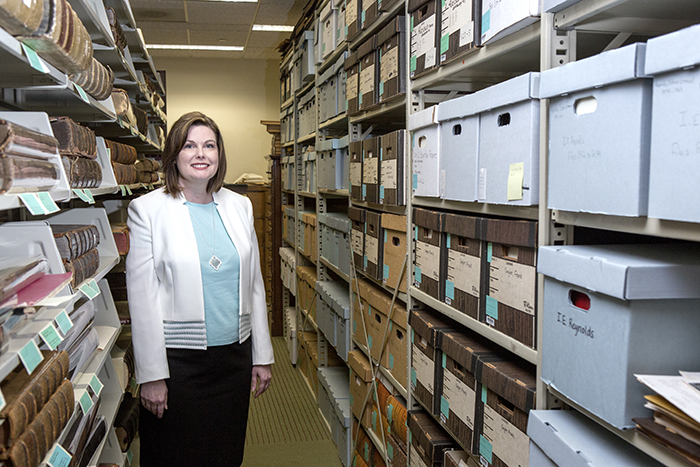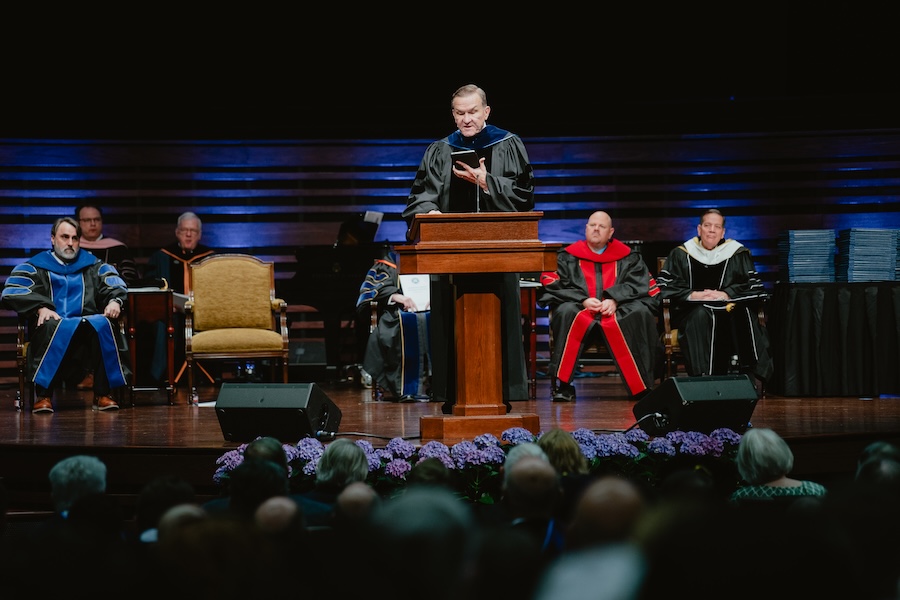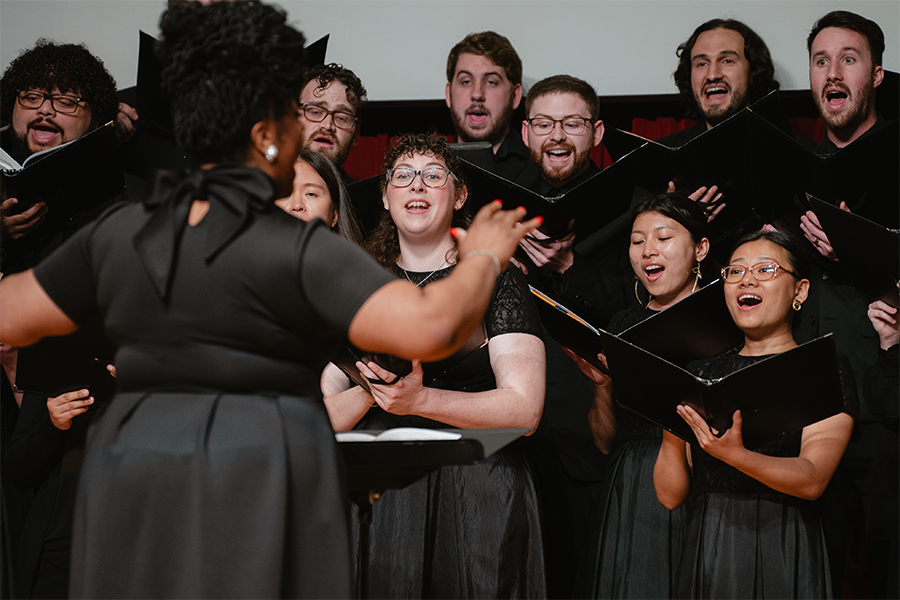Southwestern archivist joins elite ranks of certified professionals

Displaying mastery of the knowledge and experience necessary for modern archival management, Southwestern Seminary archivist and special collections librarian Jill Botticelli has achieved certification by the Academy of Certified Archivists (ACA). Botticelli recently passed the ACA’s rigorous certification exam.
“With the increasingly complex information environment, our libraries are challenged to capture and interpret vast historical material for our seminary constituent groups such as students, faculty and alumni,” says Craig Kubic, dean of libraries. “We celebrate and acknowledge Mrs. Botticelli’s unique distinction in a specialized field for the preservation of our denominational and institutional history. Southwestern Libraries is actively pursuing excellence in professional development in order to serve our students as we help them become better equipped to minister.”
Archival professionals specialize in the management of information for permanent usability. They ensure that that information retains its connection to the context that provides its meaning and know how to make information useful to people other than those who created it, using established research techniques and descriptive standards. Currently, there are 1,150 certified archivists in the nation.
Passage of the ACA’s examination indicates that an archivist’s skills meet a universal standard. Criteria for certification also include a combination of academic coursework and practical experience. The exam tests applicants’ understanding of a wide range of archival principles and practices, including document selection, arrangement and description; reference and access services; document preservation and protection; advocacy and promotion of archival collections; archival program management; and professional, ethical and legal responsibilities.
Botticelli decided to pursue certification as a way to improve her skills and strengthen Southwestern Seminary’s archive management. “It is important to me that the students and faculty of our institution have utmost confidence in the capabilities of the archive and special collections staff,” she says. “Certification demonstrates a commitment to my profession, but more importantly to the Lord, to do my best in the tasks I’ve been given.”
Archival work includes the classification, arrangement, preservation, migration, reformatting, description and selection of all types of documents, data and images. Traditionally, an archivist works with donors or the staff of its parent institution to acquire new collections; organizes and rehouses collections; describes collections and writes finding aids; and assists researchers in using the collections.



